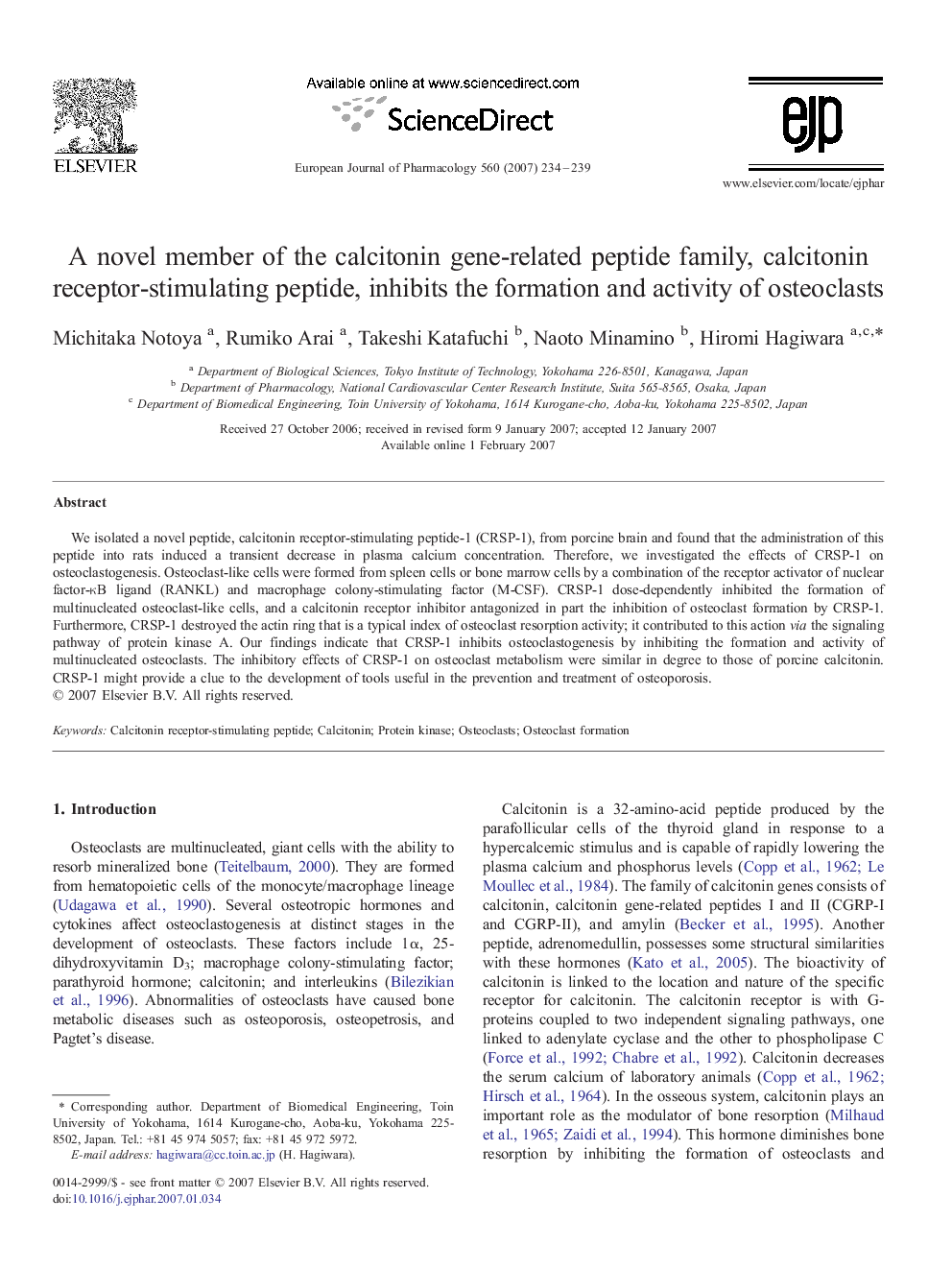| Article ID | Journal | Published Year | Pages | File Type |
|---|---|---|---|---|
| 2536233 | European Journal of Pharmacology | 2007 | 6 Pages |
We isolated a novel peptide, calcitonin receptor-stimulating peptide-1 (CRSP-1), from porcine brain and found that the administration of this peptide into rats induced a transient decrease in plasma calcium concentration. Therefore, we investigated the effects of CRSP-1 on osteoclastogenesis. Osteoclast-like cells were formed from spleen cells or bone marrow cells by a combination of the receptor activator of nuclear factor-κB ligand (RANKL) and macrophage colony-stimulating factor (M-CSF). CRSP-1 dose-dependently inhibited the formation of multinucleated osteoclast-like cells, and a calcitonin receptor inhibitor antagonized in part the inhibition of osteoclast formation by CRSP-1. Furthermore, CRSP-1 destroyed the actin ring that is a typical index of osteoclast resorption activity; it contributed to this action via the signaling pathway of protein kinase A. Our findings indicate that CRSP-1 inhibits osteoclastogenesis by inhibiting the formation and activity of multinucleated osteoclasts. The inhibitory effects of CRSP-1 on osteoclast metabolism were similar in degree to those of porcine calcitonin. CRSP-1 might provide a clue to the development of tools useful in the prevention and treatment of osteoporosis.
